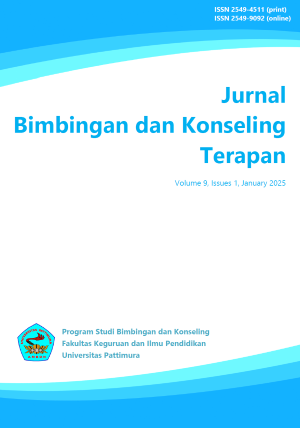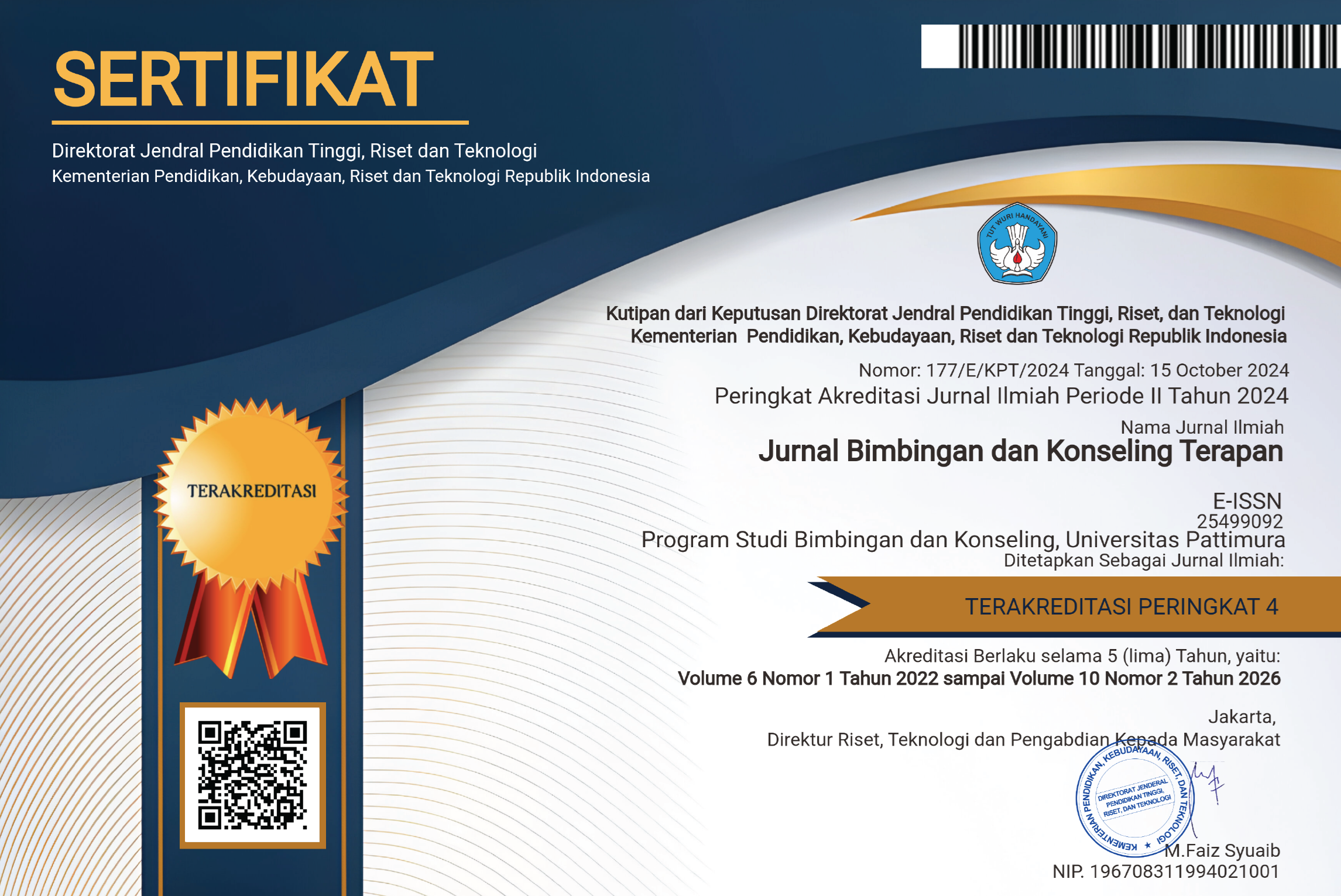Enhancing Self-Control and Peer Attachment: Counseling Strategies for Reducing Juvenile Delinquency in Islamic Boarding School
Abstract
This study examines the influence of self-control and peer attachment on juvenile delinquency among students at an Islamic boarding school. Islamic boarding schools, or pesantren, are unique educational institutions in Indonesia that emphasize both religious education and moral development. However, the strict discipline and regulations within pesantren often lead to instances of deviant behavior among adolescent students, who are particularly vulnerable during this transitional life stage. The study involved 219 students, with data collected using the Peer Attachment Scale and the Brief Self Control Scale (BSCS). The results of multiple regression analysis revealed that both self-control and peer attachment significantly impact juvenile delinquency, with peer attachment showing a stronger influence. Specifically, higher levels of self-control were associated with lower delinquency rates, while positive peer attachment was found to reduce delinquent behaviors. The findings suggest that targeted interventions in pesantren should focus on enhancing self-regulation skills and fostering positive peer relationships to mitigate delinquency. Additionally, the study highlights the importance of continuous supervision and collaboration between counselors, parents, and school authorities to create a supportive environment that promotes moral and character development. These insights provide a foundation for improving guidance and counseling strategies in pesantren, aiming to cultivate a more disciplined and ethically grounded student body.












